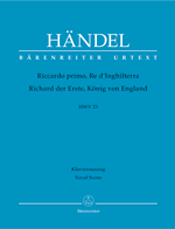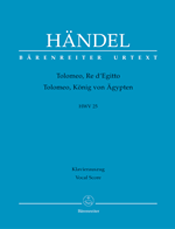Recently in Books
A musical challenge to our view of the past
In Musical Exoticism (Cambridge 2011) Ralph P. Locke undertook an
extensive appraisal of the portrayal of the ‘Other’ in works dating
from 1700 to the present day, an enquiry that embraced a wide range of genres
from Baroque opera to Algerian rap, and which was at once musical, cultural,
historical, political and ethical.
Is it okay to tweet during a concert, if it allows those who couldn’t attend to engage with the performance and the music? Or is it really just distracting, on top of all the coughing?
RILM Abstracts of Music Literature is an international database for
musicological and ethnomusicological research, providing abstracts and indexing
for users all over the world. As such, RILM’s style guide (How to Write
About Music: The RILM Manual of Style) differs fairly significantly from
those of more generalized style guides such as MLA or APA.
Opera in the British Isles might seem a rather sparse subject in the period 1875 to 1918. Notoriously described as the land without music, even the revival of the native tradition of composers did not include a strong vein of opera.
Heldentenor Jay Hunter Morris tells us about the lean times when the phone did not ring, as well as those thrilling moments when companies entrusted him with the most important roles in opera.
Commonly viewed as a ‘second-rate’ composer — a European radical persecuted by the Nazis whose trans-Atlantic emigration represented a sell-out to an inferior American popular culture —
Although part of a series entitled Cambridge Introductions to Music, Robert Cannon’s wide-ranging, imaginative and thought-provoking survey of opera is certainly not a ‘beginners’ guide’.
Those of us of a certain age have fond memories of James Melton, who entertained our parents starting in the 1930s and the rest of us in the 1940s and beyond on recordings, the radio, and films.
An important new book on Italo Montemezzi sheds light on his opera Nave. The author/editor is David Chandler whose books on Alfredo Catalani have done so much to restore interest in the genre.
Assumptions about later Italian opera are dominated by Puccini, but Alfredo Catalani, born in the same town and almost at the same time, was highly regarded by their contemporaries. Two new books on Catalani could change our perceptions.
I was feeling cowed by Herr Engels. The four of us had retired from the Stravinsky performance to a Billy Wilder-themed bar in Berlin, the least horrible late-night option in the high end mediocrity of Potsdamer Platz.
This substantial book is one of the latest in the Ashgate series of
collected essays in opera studies and draws together articles from a disparate
group of scholarly journals and collected volumes, some recent, some now
difficult to locate.
Vincent Giroud’s valuable new French Opera, a Short History, is in hand and very welcome it is.
The noted operatic impresario and stage director, Lotfi Mansouri, with the professional help of writer Donald Arthur, has issued his memoirs under the title Lotfi Mansouri: An Operatic Journey.
Originally published in German as Herrin des Hügels, das Leben der Cosima Wagner (Siedler, 2007), this new book by Oliver Hilmes is an engaging portrait of one of the most important women in music during the late nineteenth and early twentieth centuries.
Robert Stuart Thomson’s Italian language learning text, Operatic Italian, promises to become an invaluable textbook for aspiring operatic singers, voice teachers, coaches and conductors.
Ralph Locke’s recent book on Musical Exoticism is both an historical survey of aspects of the exotic in Western musical culture and a discussion of paradigms of the exotic and their relevance for musicological understanding.
Readers may recognize the author of this book, David J. Buch, a specialist on the origins of the libretto to Mozart’s Magic Flute.
Perhaps it will be enough to tell you that I wasn’t halfway through this book before I searched the web for a copy of Professor Ewans’s study of Wagner and Aeschylus’s Oresteia, and ordered it forthwith: It has to be good.
Books

16 Mar 2008
Handel's Riccardo primo, Re d’Inghilterra (HWV 23) and Tolomeo, Re d’Egitto (HWV 25) from Bärenreiter
Published in 2007, Riccardo primo, Re d’Inghilterra (HWV 23) and Tolomeo, Re d’Egitto (HWV 25) mark two of the latest installments of vocal-score editions of Handel’s operas based upon Bärenreiter’s Urtext editions.
The primary benefit of these vocal
scores seems clear enough: making available affordable, convenient, modern
critical editions of Handel’s operas.1 Hitherto, individuals have been
largely limited to reproductions of Chrysander’s admirable but often
unreliable ninetieth-century German scores (G. F. Händels Werke: Ausgabe
der deutschen Händelgesellschaft, 1858–94), which are availably for
purchase only sporadically (in the form, for example, of the Dover Score of
Giulio Cesare and Kalmus’s miniature reprint series).
Bärenreiter’s full-score editions, of course, have been beyond the means
of most individuals – Riccardo Primo and Tolomeo are
priced at €335.00 and €259.00 respectively – and are obviously intended
primarily for institutional purchase. At prices in the €25–€40 range,
however, the vocal editions are affordable to a wide range of scholars,
students, and performers.
As has generally been the case, the vocal scores of Riccardo
Primo and Tolomeo have followed the release of the full-score
editions of the same operas in the Hallische Händel-Ausgabe
(HHA) complete-works series.2 Needless to say, the vocal editions
cannot offer many of the advantages of the HHA full scores, which
have been nearly unanimously hailed for the wealth of explanatory information
they provide. The orchestrational indications, for example, offer only
sketches of Handel’s instrumentation, and are not always entirely clear.
Similarly, although a list of general procedural guidelines is supplied in
the front matter, explanations of specific editorial decisions are, of
necessity, extremely limited. The front matter, however, provides (in both
German and English) historical background, plot synopses, and, in the case of
Riccardo Primo, descriptions of the divergent versions of the opera,
giving students and scholars important contextual information. (These
passages are in some cases reproduced verbatim from the HHA
editions, and in others presented in condensed form.)
 On balance, Ricardo Primo, Tolomeo, and the rest of
the series serve their purpose quite well. For researchers, the editions will
likely save many a trip to the university library (especially if the vocal
scores are supplemented with background and source information from Winton
Dean’s two-volume monograph on Handel’s operas). Moreover, vocal
instructors, students, and professional singers alike are sure to find the
editions invaluable, in that they provide relatively easy access to
dependable editions of Handel’s operatic works with each new
publication.
On balance, Ricardo Primo, Tolomeo, and the rest of
the series serve their purpose quite well. For researchers, the editions will
likely save many a trip to the university library (especially if the vocal
scores are supplemented with background and source information from Winton
Dean’s two-volume monograph on Handel’s operas). Moreover, vocal
instructors, students, and professional singers alike are sure to find the
editions invaluable, in that they provide relatively easy access to
dependable editions of Handel’s operatic works with each new
publication.
Nathan Link
1. The vocal score of Amadigi di Gaula was published in late February 2008; Oreste is set to be published in May 2008.
2. There are three exceptions: the vocal scores for Ezio (scheduled for publication Summer 2008), Alcina (due for publication in 2009), and Giulio Cesare (publication date not yet clear) have preceded the publication of the respective HHA full score.

